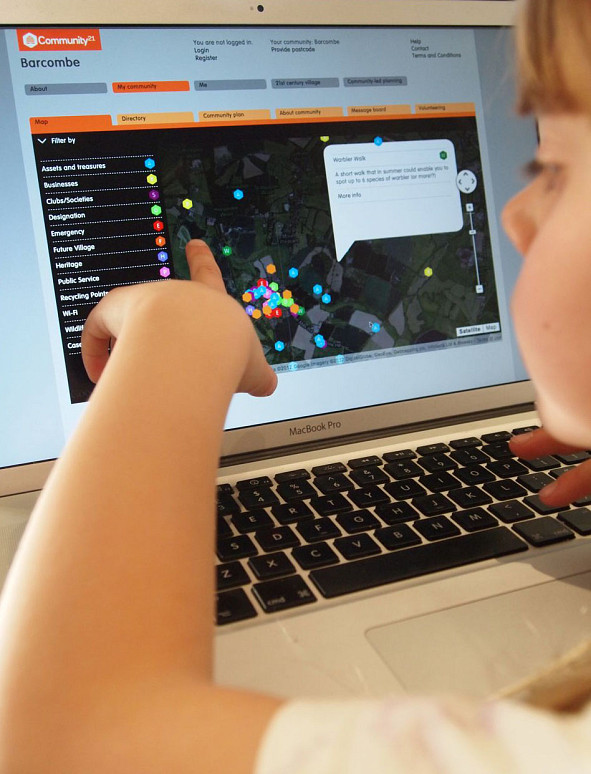Help
Community21 has selected some case study communities and projects to share across the network to inspire and inform others. Should we be featuring yours? If so get in touch.

As of spring 2012 the Localism Bill has been in effect, intended to enable communities to take the lead in defining their own future; it is a serious change in public policy. The National Planning Policy Framework also engages new legislation geared towards local empowerment and ‘bottom-up’ planning of community development through the process of statutory planning exercises known as neighbourhood plans. As the newly appointed ‘architects and planners’ of their own communities, under localism citizens of all types are seemingly offered equal participation in how their community will look in the future - but how will communities act on this new power and opportunity and what tools and skills will they need to do it?
Community 21 is a joint partnership initiative between University of Brighton - supported by the university’s *On Our Doorsteps *programme - and The Rural Community Council Network, led by Action in Rural Sussex. It was founded by Nick Gant and Teresa Gittins, Deputy Chief Executive of Action in Rural Sussex. Community21 is an online tool designed to enable communities to undertake community-led, neighbourhood plans efficiently and effectively and help ensure inclusive participation under the localism agenda. It enables the mapping of community assets and also functions as a community-to-community social network that facilitates peer-to-peer learning between communities about a whole range of issues.
Once considered the ‘triple bottom line’ of sustainability, ‘society, the economy and the environment’ are also pressures driving communities to seek resilient solutions. Rural communities are especially vulnerable to the historical trends of centralised services and, as ‘landlocked islands’, issues of transport, fuel, water, food and energy provision are all concerns of the sustainable 21st Century community. This is also where the University is able to provide support to communities alongside the work of Action in Rural Sussex by applying a whole host of expertise in areas of sustainable development. Undergraduate and postgraduate students and staff from a range of disciplinary fields including architecture and design, spatial planning, water, food and energy, environmental and social science and geography have been able to engage with real communities in a mutually beneficial exchange of expertise and local knowledge, facilitated by the Community21 system and network. A number of collaborative, exercises have taken place funded by the likes of DEFRA, DECC and The Gulbenkian Foundation which have used the system to engage young and old in envisioning how their communities might evolve sustainably using ‘app’ technology and forming community energy and water plans. By tackling issues of identified local need that have meaning and value locally, sustainability is being championed and delivered, often inadvertently, by communities themselves supported by the tools and collaboration opportunities that Community21 provides.
The project was piloted in May 2011 with eight volunteer communities across three counties and was independently evaluated. The evaluation determined where improvements to the system could be made and emphasized the value and need for such a system that can help communities undertake participatory planning and execute self-determined actions whilst sharing knowledge with neighboring communities; local authorities and service providers to increase efficiency and effectiveness of planning.
Community21 provides a platform from which the University can grow it’s partnerships through mutual values and understanding whilst tacking some of the most pressing issues that face society.
Nick Gant, Principal Lecturer School of Architecture & Design